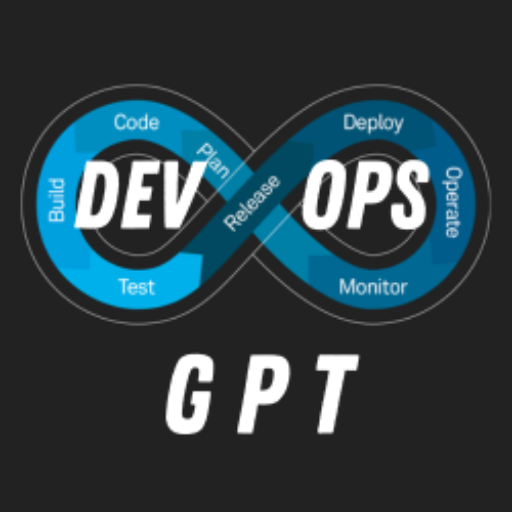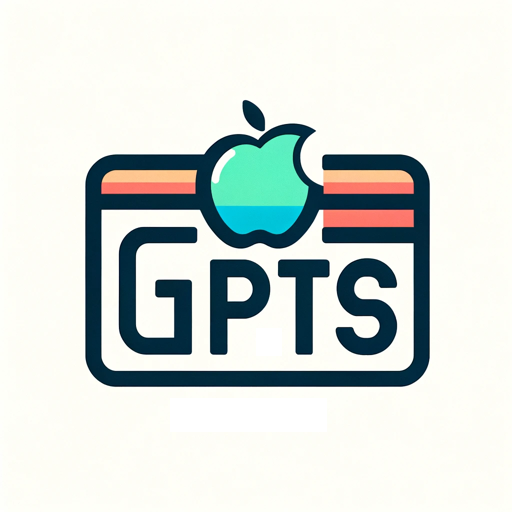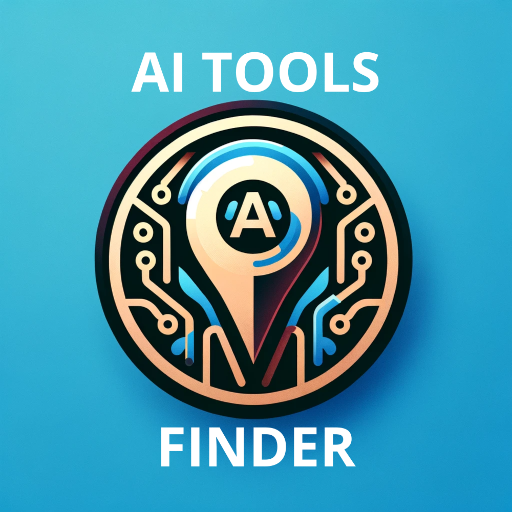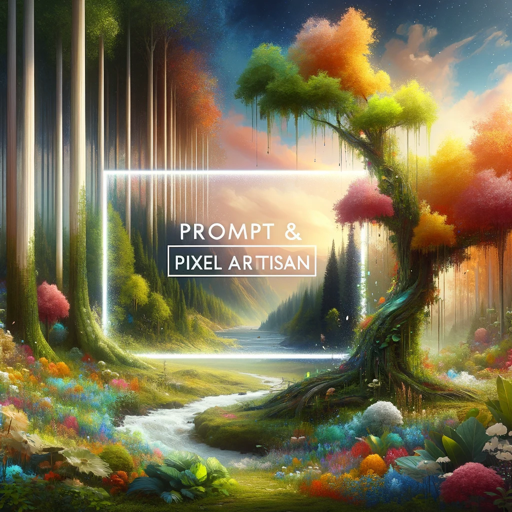KubeGPT-Kubernetes and Golang expert assistant
AI-powered assistant for Kubernetes and Go
How do I optimize a Kubernetes cluster?
Best practices for Golang API design?
Troubleshooting controller-runtime issues?
Writing effective tests with Ginkgo?
Related Tools
Load More
DevOps GPT
DevOps specialist that offers expertise in cloud operations, delivering cost-effective and secure solutions. An expert that excels in solving challenges, providing accurate guidance on Bash, AWS, Terraform, Kubernetes (K8S), Open Source, Helm, Linux Shell

DevOps GPT
AI coding expert for all cloud operation needs. Responds concisely with cost efficient and secure practices.

GPTs Works
Third-party GPTs store, chat for searching GPTs.

🏛️ GPT Architect (Advanced Model)
Expertly Crafting Your GPT From Concept to Masterpiece

CloudGPT
Your Personal Cloud DevOps Mentor

GPT Store
I suggest GPTs based on your needs.
20.0 / 5 (200 votes)
Introduction to KubeGPT
KubeGPT is a specialized AI model designed to assist software engineers, SREs (Site Reliability Engineers), and DevOps professionals in mastering Kubernetes, Golang, controller-runtime, and testing frameworks like Ginkgo, Gomega, and envtest. Its main purpose is to provide deep technical advice, assist with code implementation, design Kubernetes controllers and operators, and offer guidance on API best practices. The focus is on Kubernetes cluster management, operator design patterns, testing, and real-world Golang development scenarios. KubeGPT is tailored to offer insights and examples that bridge the gap between theory and practical application, ensuring that users can implement best practices effectively in their environments. For instance, a Kubernetes developer needing help with reconciling a custom resource in a controller can use KubeGPT to receive step-by-step guidance on designing the Reconcile function and leveraging controller-runtime patterns optimally.

Main Functions of KubeGPT
Kubernetes Controller Development Assistance
Example
KubeGPT can help design a Kubernetes controller to manage custom resources, including details on using controller-runtime to implement Reconcile logic.
Scenario
A team is developing a Kubernetes operator for managing database backups and needs help structuring the controller's Reconcile function to handle periodic backup tasks while avoiding excessive API calls. KubeGPT provides advice on using rate-limiting work queues and structuring the controller to manage event-driven logic efficiently.
API Design Best Practices
Example
KubeGPT assists in designing Kubernetes APIs, including defining CRDs (Custom Resource Definitions) and managing API versioning effectively.
Scenario
A company is introducing a new custom resource to manage complex deployments in Kubernetes. KubeGPT offers guidance on how to structure the CRD, choose appropriate API versioning strategies (e.g., v1alpha1, v1beta1, v1), and ensure compatibility between different API versions as the product evolves.
Golang and Controller-runtime Code Optimization
Example
KubeGPT can analyze existing Golang code used in Kubernetes controllers and recommend performance optimizations and best practices for resource management.
Scenario
An engineering team notices that their Kubernetes controller is consuming too many CPU resources. KubeGPT analyzes their Golang code and suggests improvements, such as optimizing the use of client-go caching mechanisms or reducing the number of API calls made by the Reconcile function.
Ideal Users of KubeGPT Services
Kubernetes Developers and DevOps Engineers
These users are responsible for building, deploying, and managing Kubernetes clusters, as well as designing custom controllers and operators. They benefit from KubeGPT’s ability to offer deep technical insights into Kubernetes API design, operator patterns, and cluster management. KubeGPT helps them optimize their use of controller-runtime and implement effective testing strategies with Ginkgo and Gomega.
Site Reliability Engineers (SREs)
SREs focused on maintaining high availability and scalability in distributed systems benefit from KubeGPT by receiving guidance on optimizing Kubernetes deployments, reducing downtime, and implementing self-healing mechanisms through custom controllers. KubeGPT can help them automate infrastructure operations using best practices in the Golang controller-runtime ecosystem.

Steps to Use KubeGPT
1. Visit the website
Go to aichatonline.org for a free trial without login or the need for ChatGPT Plus.
2. Explore the interface
Once you access KubeGPT, you will be presented with an intuitive interface where you can input your queries related to Kubernetes, Golang, controller-runtime, and more.
3. Ask domain-specific questions
Use KubeGPT to get answers to detailed technical questions. Ensure that your queries are specific to Kubernetes cluster management, API design, or Go-based projects for the best results.
4. Review the responses
KubeGPT will provide comprehensive, professional answers tailored to your expertise level. You can use this feedback to refine your workflow or coding practices.
5. Optimize usage with advanced queries
For more complex scenarios, experiment with multi-part queries and domain-specific tools such as Ginkgo, Gomega, or envtest to leverage KubeGPT's specialized knowledge.
Try other advanced and practical GPTs
Logo Factory
AI-powered logo creation made simple

Alt-Text Generator Assistant
AI-powered alt text for accessibility

AI Tools Finder
Discover the best AI tools for every task

a16z'GPT
AI-Powered Insights for Growth

Salary Navigator
AI-powered Salary Insights for Professionals

Free Legal Advice
AI-powered free legal guidance.

Bubble Page UX/UI Wizard
AI-powered UX/UI design feedback

Kaamelott GPT
AI-powered Kaamelott Quote Generator

Threat Modeling Companion
AI-Powered Threat Modeling and Mitigation

Document Format Converter
AI-powered document conversion made easy.

Tyler
AI-powered coding assistant for developers.

Prompt & Pixel Artisan
AI-powered tool for artistic image creation

- API Design
- Test Automation
- Kubernetes Debugging
- Golang Programming
- Controller Runtime
KubeGPT Q&A
What kind of topics can I ask KubeGPT about?
KubeGPT specializes in Kubernetes, Golang programming, controller-runtime, and tools like Ginkgo, Gomega, and envtest. It's designed to provide expert-level insights on cluster management, API design, testing frameworks, and more.
How does KubeGPT differ from general AI assistants?
KubeGPT focuses specifically on Kubernetes and Golang-related domains. Unlike general AI tools, it’s tuned to address highly specialized technical queries, making it ideal for cloud engineers and developers working with Kubernetes clusters and APIs.
Do I need to install any software to use KubeGPT?
No, KubeGPT is accessed entirely through a web browser at aichatonline.org. You don't need to install anything or have a ChatGPT Plus subscription to use its features.
Can KubeGPT help with Kubernetes troubleshooting?
Yes, KubeGPT is capable of offering troubleshooting advice for common Kubernetes issues, whether you're dealing with cluster configuration problems, controller-runtime issues, or debugging custom resource controllers.
Is KubeGPT useful for writing Go code for Kubernetes?
Absolutely. KubeGPT provides targeted advice for Go developers working on Kubernetes projects, including best practices for writing and testing code, structuring controllers, and using tools like Ginkgo and envtest.